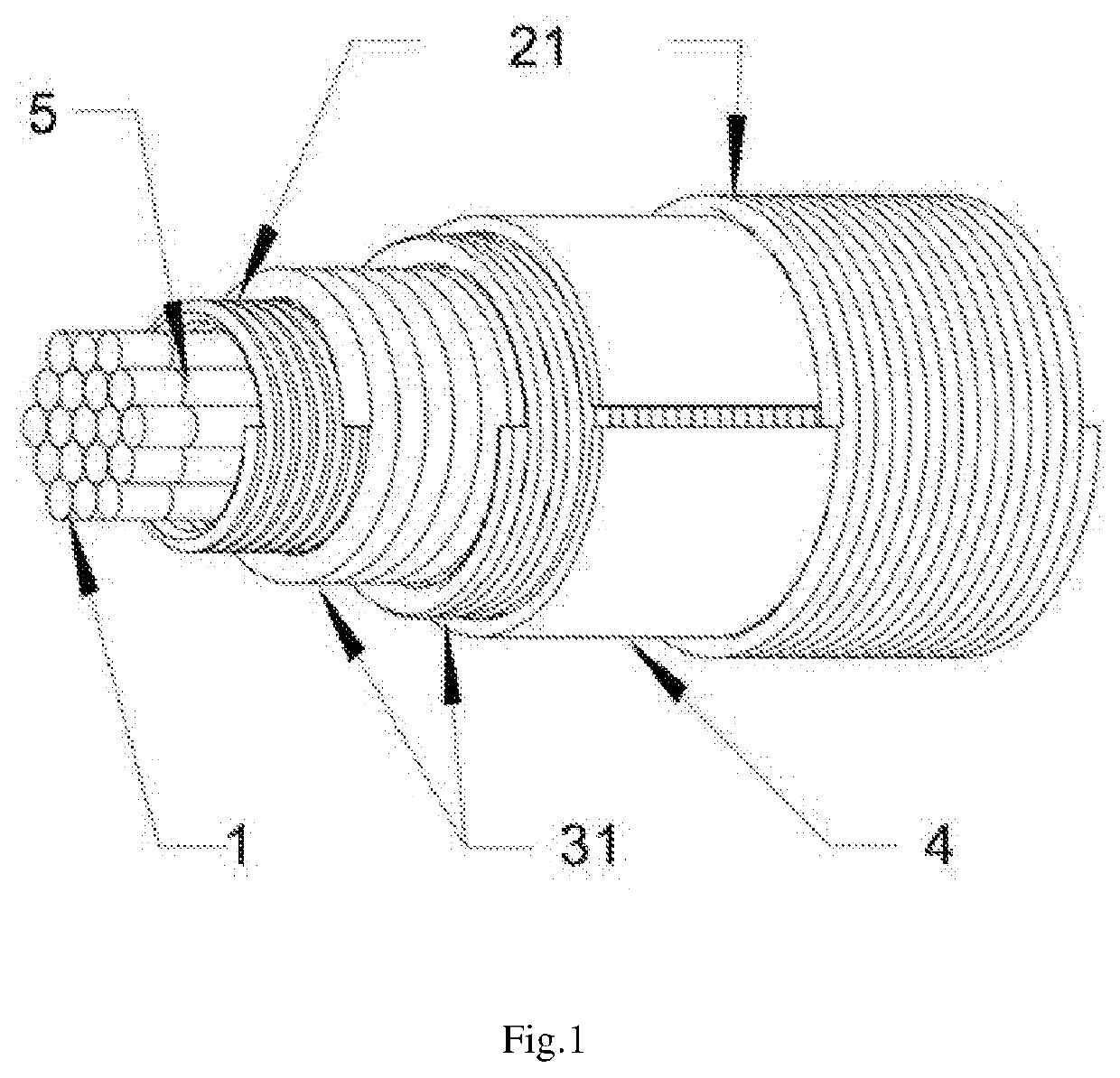Flexible current sensor with stranded core
a flexible current sensor and core technology, applied in the field of sensor circuits, can solve the problems of insufficient precision metering accuracy of state of the art flexible rogowski current sensor, significant influence on the accuracy of flexible current sensors, etc., to ensure long-term dimensional and thermal stability, improve the overall flexibility of the sensor, and improve the accuracy of cross-sectional area
- Summary
- Abstract
- Description
- Claims
- Application Information
AI Technical Summary
Benefits of technology
Problems solved by technology
Method used
Image
Examples
example
[0015]The presented FIGURE shows a flexible current sensor with a flexible core 1 comprising a plurality of individual fibers from a nonmagnetic material arranged into the nearest hexagonal approximation of a cylindrical shape. A sensing coil 21 comprises an overlapping winding pair wound on the core. Two individual windings of the pair are wound in mutually opposite directions. The separation layer 31 is made of two windings of a nonmetallic fiber wound with mutually opposite directions between the windings of the sensing coil 21. The homogenization foil 4 wrapping the upper winding of the separation layer 31 enables smooth and accurate winding of the outer winding of the sensing coil 21. Each individual fiber of the flexible core 1 is fabricated from a nonmagnetic metallic material and is covered by an isolation layer 5. An enameled copper wire is used in this example as the nonmagnetic metallic material.
PUM
 Login to View More
Login to View More Abstract
Description
Claims
Application Information
 Login to View More
Login to View More - R&D
- Intellectual Property
- Life Sciences
- Materials
- Tech Scout
- Unparalleled Data Quality
- Higher Quality Content
- 60% Fewer Hallucinations
Browse by: Latest US Patents, China's latest patents, Technical Efficacy Thesaurus, Application Domain, Technology Topic, Popular Technical Reports.
© 2025 PatSnap. All rights reserved.Legal|Privacy policy|Modern Slavery Act Transparency Statement|Sitemap|About US| Contact US: help@patsnap.com

